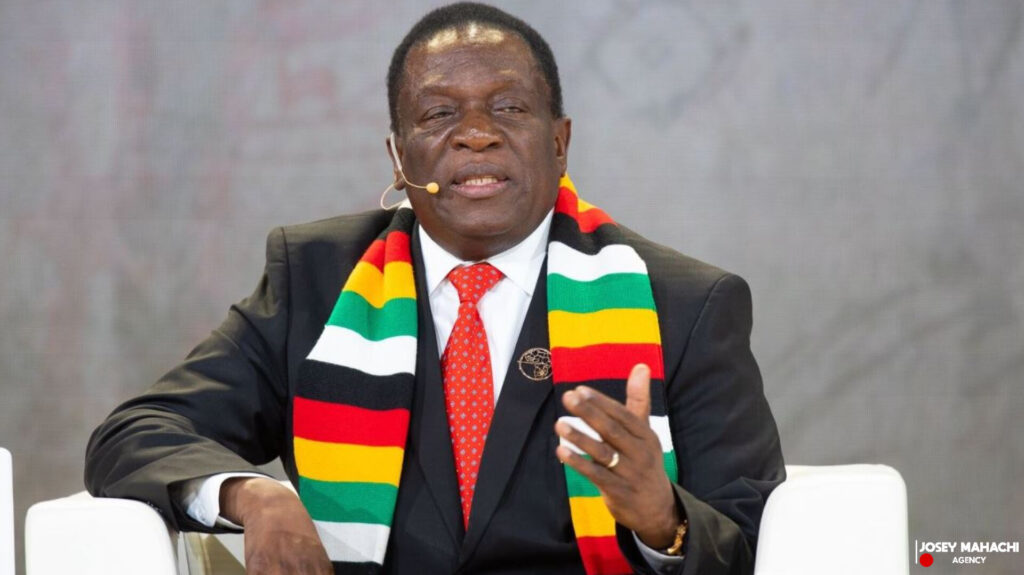By : Lloyd Mahachi
Zimbabwe’s ruling party, Zanu-PF, has launched a campaign to extend President Emmerson Mnangagwa’s stay in power beyond the constitutional limit of two terms. The party, which secured a two-thirds majority in parliament, is pushing to amend the 2013 constitution to allow Mnangagwa to run for a third term in the 2028 elections.
The opposition is strongly opposed to amending the constitution, which limited presidents to two five-year terms. According to Lovemore Madhuku, a law professor at the University of Zimbabwe and an opposition leader, it will be difficult though not impossible for the ruling party to change the constitution in time for its leader to run in the 2028 election.
Ziyambi Ziyambi, Zimbabwe’s minister of justice, legal and parliamentary affairs, said the government is ready to move forward once lawmakers introduce the bill to amend the constitution. However, Madhuku outlined the steps required to amend the constitution, including publication of the bill, a 90-day period for debate, and a two-thirds majority vote in parliament, followed by a referendum.
The process of amending the constitution is complex and requires careful consideration. Madhuku emphasized that the ruling party must follow the proper procedures to avoid any legal challenges. He also noted that the opposition will vigorously campaign against the proposed amendment, arguing that it is unconstitutional and undemocratic.
Douglas Mwonzora, leader of the Movement for Democratic Change party, said the MDC will campaign vehemently against the bid to have Mnangagwa stand for a third term. Mwonzora stated that one referendum will not suffice for Mnangagwa to stand in 2028, and another referendum will be needed, specifically stating whether or not President Mnangagwa must stand again.
The MDC will campaign for a “no” vote, not because they have anything personal against President Mnangagwa, but because they believe it’s time for other leaders to take over. Mwonzora emphasized that the constitution is clear on the two-term limit, and any attempt to amend it would be a blatant disregard for the rule of law.
Ziyambi, however, is confident that Zanu-PF will overcome all obstacles in the way of Mnangagwa’s third term, citing the party’s strong grassroots support. He argued that the ruling party has a mandate from the people to govern, and that Mnangagwa’s leadership has been instrumental in stabilizing the economy and promoting development.
President Robert Mugabe ruled Zimbabwe for 37 years before Mnangagwa, a former army general and Mugabe’s vice president, took power in a 2017 coup. Mnangagwa is 82 years old and is currently the fifth oldest head of state in Africa. The push for a third term has sparked concerns about Mnangagwa’s intentions and the potential implications for Zimbabwe’s democracy.
The international community has been watching the developments in Zimbabwe with keen interest. The United States, the European Union, and other Western countries have expressed concerns about the potential erosion of democracy in Zimbabwe. The African Union and other regional organizations have also called for restraint and adherence to the constitution.
As the debate over Mnangagwa’s third term continues, Zimbabweans are bracing themselves for a potentially tumultuous period. The outcome of the constitutional amendment process will have far-reaching implications for the country’s future, and the world will be watching closely to see how events unfold.
Editor : Josephine Mahachi

